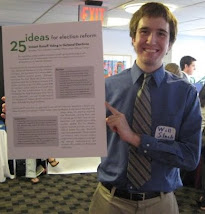There are a myriad of options out there for managing tasks and time management at the individual/personal level. David Allen's "GTD" system is one used by my company, but there are dozens of websites with ideas. One of my favorite talks on the subject is by the "Last Lecture" YouTube star,
Randy Pausch. It's an interesting area, and one where I continue to iterate.
The struggle I've had is in finding the appropriate balance between detail and efficiency when managing tasks owned by others. Let's be clear here: we may not
have the monkey with any of these tasks, but we do own the overall success of the project, and we are accountable when the task owner misses a task or gets offtrack with a project. This is task management, executive-style.
Let's define some possible cases are the far end of each spectrum. On the one hand, we can manage the tasks of others as we manage our own tasks - for me, this means tracking individual tasks using lists with checkboxes, divided and sorted by subject matter. It's also extremely time intensive and wasteful whenever a task happens on track: there's a cost of my time in monitoring the task, my time in sending a "ping" of some form about it, their time in replying, and my time in checking the box off.
This isn't sustainable across the board.
On the other hand, we can check in at occasional (perhaps weekly) checkpoints on status and if work efforts are on track - relying more on the other person's task tracking. This doesn't take a lot of time, but it tends to stay at the project level (unless it's a 1-2-1 planning meeting), and
it's not great at mitigating risk. Let's dig into why:
- Wastes time for the larger group if you get too detailed
- Doesn't allow easy opportunities to check-back on late tasks
- Allows updates like "I didn't get to this, will get to it today/tomorrow.
- Doesn't account for issues or tasks that the person might have forgotten.
In my work as a project manager, I've found that we need a system that allows for a
middle ground of the two approaches above, and can be
dialed up or down depending on the urgency of the project and the past performance of the task owner. I'm still working on ideas about how to dial up and down seamlessly.

